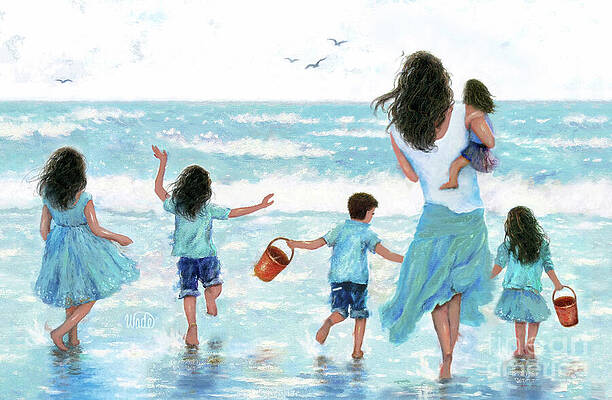Your Child is a Direct Reflection of You

Your Child is a Direct Reflection of You
As a parent, it’s easy to think of your child as a separate entity, someone with their own unique identity and character. However, the truth is that your child is deeply influenced by the environment you create for them and the way you engage with them. In many ways, your child is a reflection of you—your actions, words, attitudes, and behaviors shape who they become and how they see the world around them.
The way you treat people will be how your child treats others. When you show kindness, respect, and empathy to the people you encounter in your daily life, your child will internalize those values and carry them forward. Children observe and imitate the behavior of adults, especially their parents, and they learn by example. If you consistently model behaviors such as fairness, patience, and compassion, your child will grow up to value these qualities in their interactions with others. In contrast, if your interactions are filled with judgment, disrespect, or cruelty, your child may adopt these same tendencies in their own relationships, perpetuating a cycle of negativity.
But it’s not just how you treat other people that your child will absorb. It’s also how you treat them directly. The tone of voice you use when speaking to your child, the words you choose, and the way you communicate—both with your words and your body language—will leave a lasting imprint on how your child feels about themselves. If you speak to your child with love, encouragement, and patience, they will learn to value and respect themselves. They will know that they are worthy of kindness and care, and this will shape their self-esteem and self-worth.
On the other hand, if you speak harshly or dismissively to your child, if you consistently belittle or criticize them, they may come to believe that they are not good enough or capable of succeeding. Children are incredibly sensitive to the way they are treated, and their self-image is largely formed in the early years through their experiences with their parents. A child who is constantly told they are not enough may struggle with insecurity or self-doubt throughout their life, while a child who is nurtured with love and support will likely grow into a confident, compassionate, and resilient individual.
Beyond how you speak to and treat your child, your thoughts about them also play a critical role in shaping who they become. As a parent, your perception of your child—how you see their potential, their abilities, and their worth—will influence their own beliefs about themselves. If you consistently show belief in their abilities, encourage them to pursue their passions, and help them overcome obstacles, they will internalize the message that they are capable and deserving of success. This positive reinforcement will help them develop a growth mindset, where they believe in their ability to improve and succeed through effort and perseverance.
However, if your thoughts about your child are filled with doubt, judgment, or negativity, they will feel this energy and may begin to see themselves in the same way. Children can often sense when their parents are frustrated or disappointed in them, even if those feelings are not expressed verbally. When this happens, children may start to question their self-worth or develop limiting beliefs about what they are capable of. This can lead to a lack of confidence, anxiety, and feelings of inadequacy.
In addition to how you treat and think about your child, everything you show them—your actions, beliefs, and lifestyle—will be absorbed and integrated into their worldview. Children are like sponges, soaking up everything around them, especially the example set by their parents. They watch how you handle stress, how you deal with conflict, how you prioritize relationships, and how you take care of yourself. All of these things leave an impression on your child and become part of their own behavior.
If you live a life that is aligned with your values—whether those values are hard work, integrity, love, or perseverance—your child will naturally adopt these values as their own. Children learn by observing how their parents navigate the world, and they often adopt similar approaches to life. However, if you live a life that is inconsistent with your values, or if you model behaviors that are unhealthy or destructive, your child may struggle to develop the same principles, which can lead to confusion or difficulty in making decisions.
As a parent, it’s important to realize that your role is not just to provide for your child’s physical needs but to also nurture their emotional and psychological development. This requires a high level of self-awareness and an understanding that every interaction, every word, and every action you take has the potential to shape your child’s future. You are their first teacher, their role model, and the person who will influence how they see themselves and the world around them.
This is why it is essential to set an example of what you want your child to become. If you want your child to grow into a compassionate, strong, and respectful individual, you must first embody those qualities yourself. It’s not enough to simply tell your child how to act or what to value—you must live those values each day, consistently and authentically. Children learn far more from what they see you do than from what they hear you say.
It’s also important to acknowledge that being a parent is not about perfection. You will make mistakes, and you will have moments of weakness. The key is to own those mistakes, learn from them, and show your child how to recover and grow. Being able to apologize when necessary, admitting when you don’t have all the answers, and showing your child that it’s okay to be imperfect can teach them the value of humility, resilience, and growth.
By setting an example of kindness, respect, and integrity, you are giving your child the best chance to become the person you hope they will be. You are shaping their sense of self-worth, their beliefs about relationships, and their ability to navigate the challenges of life. Your child is a direct reflection of you, and the way you treat them—and the world around you—will have a profound impact on the person they grow up to be.
Ultimately, parenting is about much more than giving advice or providing for your child’s needs. It’s about showing up every day as the best version of yourself, knowing that your actions, words, and attitudes will shape your child’s future. By consistently modeling the values and behaviors you want to see in your child, you are helping them become the person they are destined to be. And that is the greatest gift you can give them.











